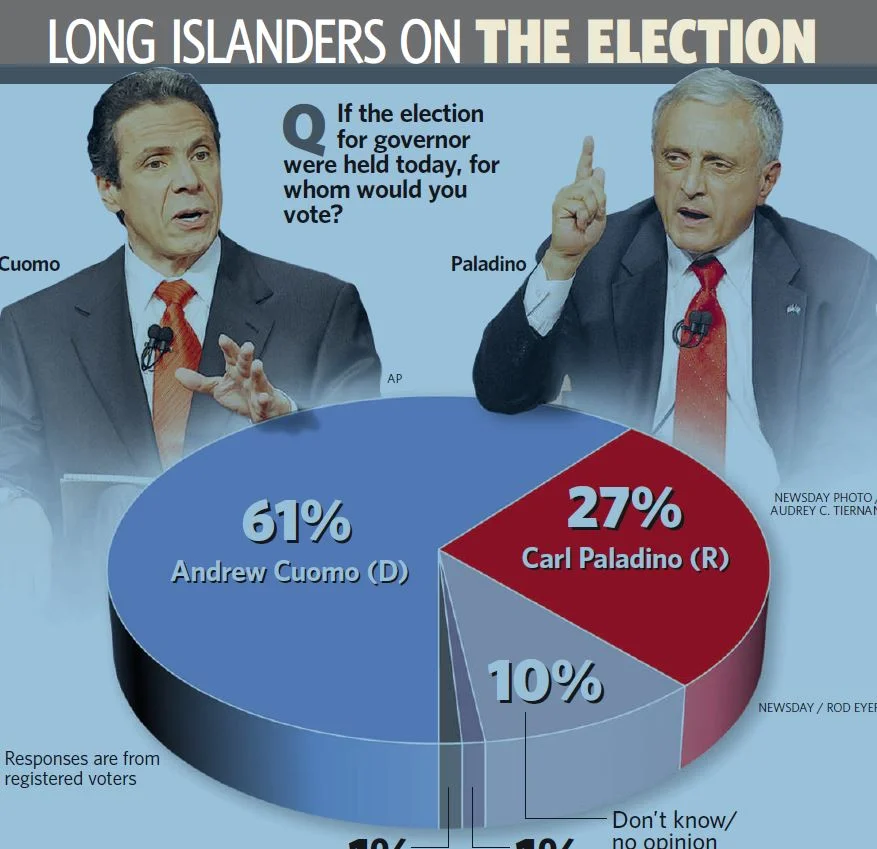News Analysis: Spitzer's Options
Newsday, March 25, 2008
Gary Hart was headed for the Democratic presidential nomination when extramarital cuddles aboard a yacht called Monkey Business brought his public life to a humiliating end.
Twenty years later, he's the picture of gravitas, an Oxford-trained think-tank chairman on the Council of Foreign Relations.
Bob Packwood, the Oregon senator forced from office in a sexual-abuse scandal, found a less distinguished but probably more lucrative new life as a Washington lobbyist, while Gary Condit, the California congressman who admitted an affair with a slain intern, briefly operated two Baskin-Robbins franchises.
So yes, Eliot, there's life after scandal.
Even as he announced his resignation on March 17 amid a federal probe of his dealings with a prostitution ring, Eliot Spitzer, New York's steamroller-in-chief, sounded as ambitious as ever, vowing to "go forward" with the belief that "our greatest glory consists not in never falling, but in rising every time we fall."
After patching up his family life, he vowed, "I will try once again, outside of politics, to serve the common good and to move toward the ideals and solutions which I believe can build a future of hope and opportunity for us and for our children."
Heroic words. Since then, Spitzer's public duties have consisted mainly of walking the dog, as his stunned executive staff scrambled to find jobs and the public's attention moved on to the power plays and romances of a new governor.
The to-do list of a disgraced official is, after all, well-rehearsed: Disappear for a while; beg the family's forgiveness; bond with defense attorneys and get used to the taste of humble pie. In a fall from grace this steep, even a criminal sentence could scarcely do more harm to his reputation, veteran observers say.
The inevitable tell-all
After a suitable period out of the public eye, "I think [Spitzer] has to tell someone - it could be '60 Minutes,' or a book - he has to tell people what exactly happened - why did you do this?" said Democratic consultant George Arzt, outlining the path public figures take to rehabilitation.
"He has to explain it first. Then he could go out and use his father's resources to help him set up a foundation and do good deeds, and become the comeback story of the decade. People would be willing to forgive him if he did some good."
Other comebacks
Martha Stewart has moved on from her obstruction-of-justice sentence with nary a backward glance.
Sotheby's former chairman Alfred Taubman emerged from his price-fixing prison term slimmer, wrote a book, endowed some academic centers and returned to Hamptons respectability.
Even Marv Albert, the NBC announcer accused of forcibly sodomizing and biting a woman in a hotel room, was back on the air two years after pleading guilty to reduced charges.
Arzt and others say Spitzer's most promising role model may be junk-bond king Michael Milken, who paid $200 million in fines and went to prison on six felony counts in 1991. He emerged from prison in 1993 and launched the world's leading philanthropy on prostate cancer; in 2004 he was lauded in a Fortune magazine cover story as "The Man who Changed Medicine."
Consultant Hank Sheinkopf sees the type-A Spitzer 10 years from now heading a public-policy foundation "of his own, that he controls, where he can determine how the money is spent, to whom it is given and he can control every portion of the programs that come out of it. ... [That] allows him to try to control the political environment in some small fashion again."
For now, Spitzer has little hope of disappearing into the woodwork while he works out his atonement. He is recognizable anywhere in America, chased by the curses of his many enemies on Wall Street and in Albany.
Even for those better liked, the indignities prove hard to swallow. Such was the fate of Sol Wachtler, chief judge of the state Court of Appeals, after he was arrested on the Long Island Expressway in 1992 for a bizarre series of harassing letters to a lover that would be attributed to having bipolar disorder.
After a 15-month prison term, Wachtler began teaching at Pace Law School to fulfill his community service requirement, until staff complained his offense had rendered him unfit. He was hired at Cardozo Law School at Yeshiva University, where he'd been a commencement speaker, only to have trustees intervene. He finally was hired as an adjunct professor at Touro Law School, where he teaches to this day.
In 2003, efforts to get his law license back were rebuffed, after he gave an interview to Newsday expressing his hope to regain his name and place in society. That turned one of the most gregarious men in politics press-shy, but Wachtler has devoted himself to a new calling that draws insight from his own frailties: lobbying for reforms in the way the criminal justice system treats mentally ill prisoners.
He won his law license back last October. But atonement only goes so far, Wachtler told a group of Albany-area junior high school students last week.
"He said that really, disgrace follows you every day," said Seth Harris, the U.S. history and government teacher who had invited the former chief judge to talk to his students about mental health reform. "... You wear it like a hair shirt, and will for the rest of your life."






